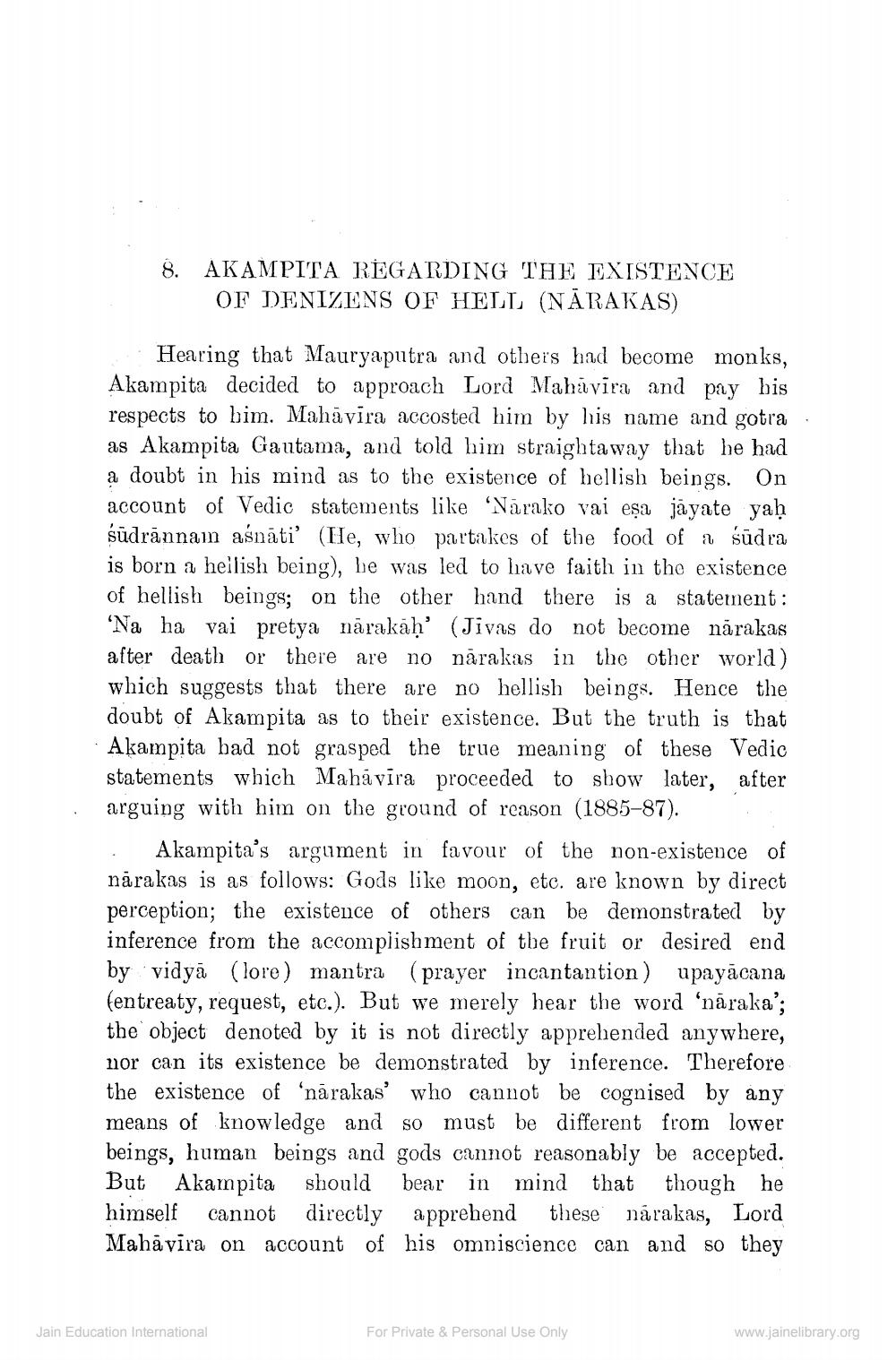________________
8. AKAMPITA REGARDING THE EXISTENCE
OF DENIZENS OF HELL NÄRAKAS)
Hearing that Mauryaputra and others had become monks, Akampita decided to approach Lord Mahavira and pay bis respects to bim. Mahāvīra accosted him by his name and gotra as Akampita Gautama, and told him straightaway that he had a doubt in his mind as to the existence of hellish beings. On account of Vedic statements like "Nārako vai eșa jayate yaḥ sūdrānnain aśnāti' (He, who partakes of the food of a sūdra is born a heilish being), be was led to have faith in the existence of hellish beings; on the other hand there is a statement: "Na ha vai pretya nārakāḥ' (Jivas do not become nărakas after death or there are no nārakas in the other world) which suggests that there are no hellish beings. Hence the doubt of Akampita as to their existence. But the truth is that Akampita had not grasped the true meaning of these Vedic statements which Mahā vīra proceeded to show later, after arguing with him on the ground of reason (1885–87).
Akampita's argument in favour of the non-existence of nārakas is as follows: Gods like moon, etc. are known by direct perception; the existence of others can be demonstrated by inference from the accomplishment of the fruit or desired end by vidyā (lore) mantra (prayer incantantion) upayācana (entreaty, request, etc.). But we merely hear the word 'nāraka'; the object denoted by it is not directly apprehended anywhere, nor can its existence be demonstrated by inference. Therefore the existence of ‘närakas' who cannot be cognised by any means of knowledge and so must be different from lower beings, human beings and gods cannot reasonably be accepted. But Akampita should bear in mind that though he himself cannot directly apprehend these närakas, Lord Mahavira on account of his omniscience can and so they
Jain Education International
For Private & Personal Use Only
www.jainelibrary.org




